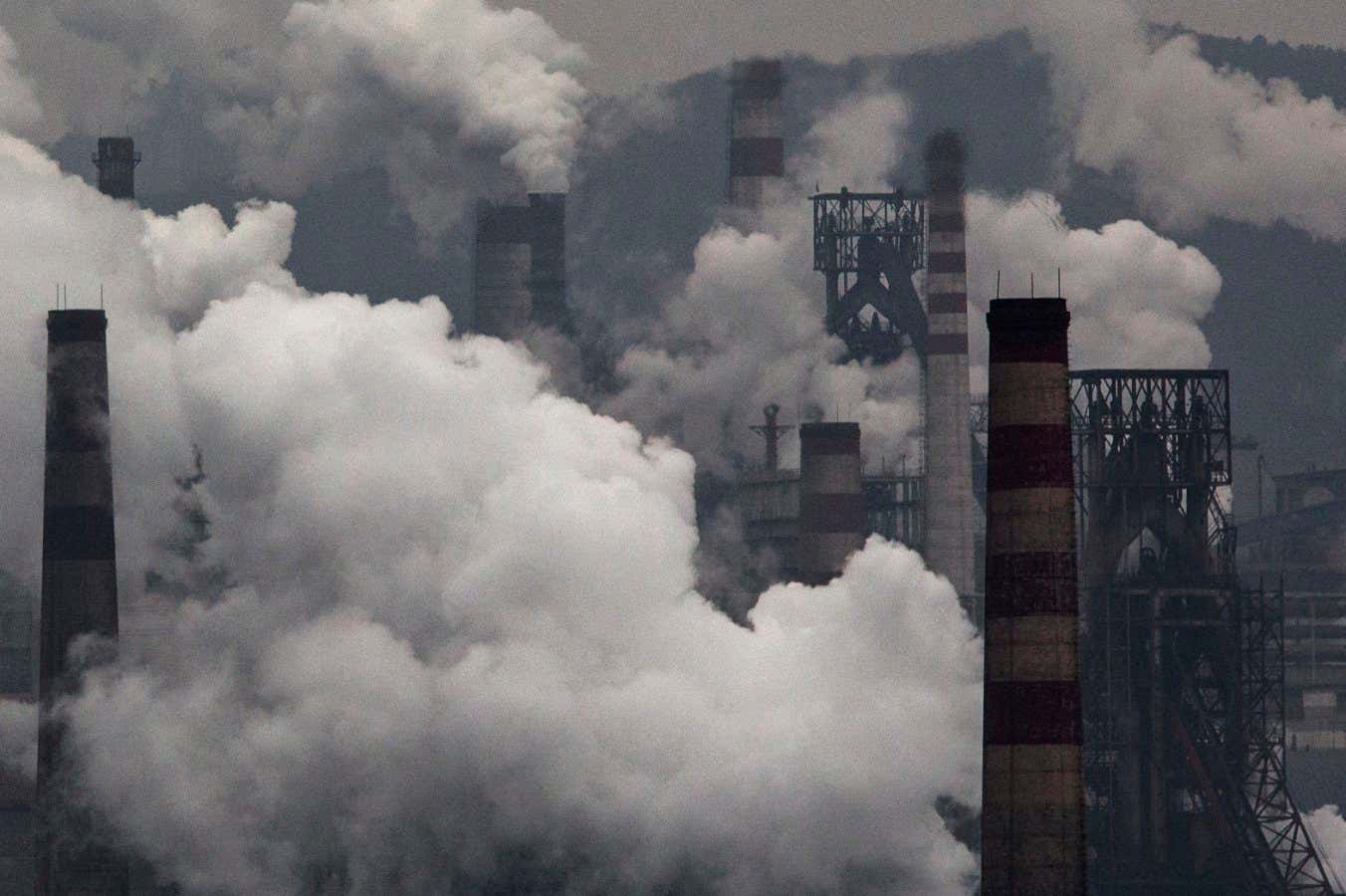The rate at which the planet is warming has sped up since 2010, and now researchers say that China’s efforts to clean up air pollution are inadvertently responsible for the majority of this extra warming
By Madeleine Cuff
31 March 2025
A steel factory in Hebei, China, in 2015
Kevin Frayer/Getty Images
A recent surge in the rate of global warming has been largely driven by China’s efforts to reduce air pollution, raising questions about how air quality regulations are influencing the climate and whether we fully understand the impact of removing aerosols from the atmosphere. This extra warming, which was being masked by the aerosols, accounts for 5 per cent of global temperature increase since 1850.
In the early 2000s, China had extremely poor air quality as a result of rapid industrialisation, leading to a public outcry in the run-up to the 2008 Beijing Olympics. In response, Chinese authorities fitted scrubbers to coal power plants to curb the dirtiest emissions and tightened rules governing vehicle exhausts, leading to a 75 per cent drop in sulphate emissions.
Read more
Air quality: How does pollution affect your health?
Advertisement
But there is a sting in the tail of this environmental success story. According to a new analysis, China’s dirty air had inadvertently been cooling the planet, and now that it is gone we are starting to see a greater warming effect.
We know that warming has probably sped up in the last decade or so. Since 1970, the world had been warming at a constant rate of about 0.18°C (0.32°F) per decade, but since 2010, that seems to have increased to around 0.24°C (0.43°F) per decade, once the influence of natural climate variability is stripped out. Researchers have previously pointed the blame for this uptick in warming at efforts to curb air pollution, but until now they had struggled to pin down what contribution individual regions were making to the global trend.
Sulphate aerosols, released by burning fossil fuels, cool the planet in two ways. The particles themselves reflect sunlight back into space, shielding Earth from solar radiation. They also influence the way clouds are formed, increasing the occurrence of whiter, longer-lived clouds that also reflect radiation. Removing these aerosols from the atmosphere therefore eliminates a cooling effect.
